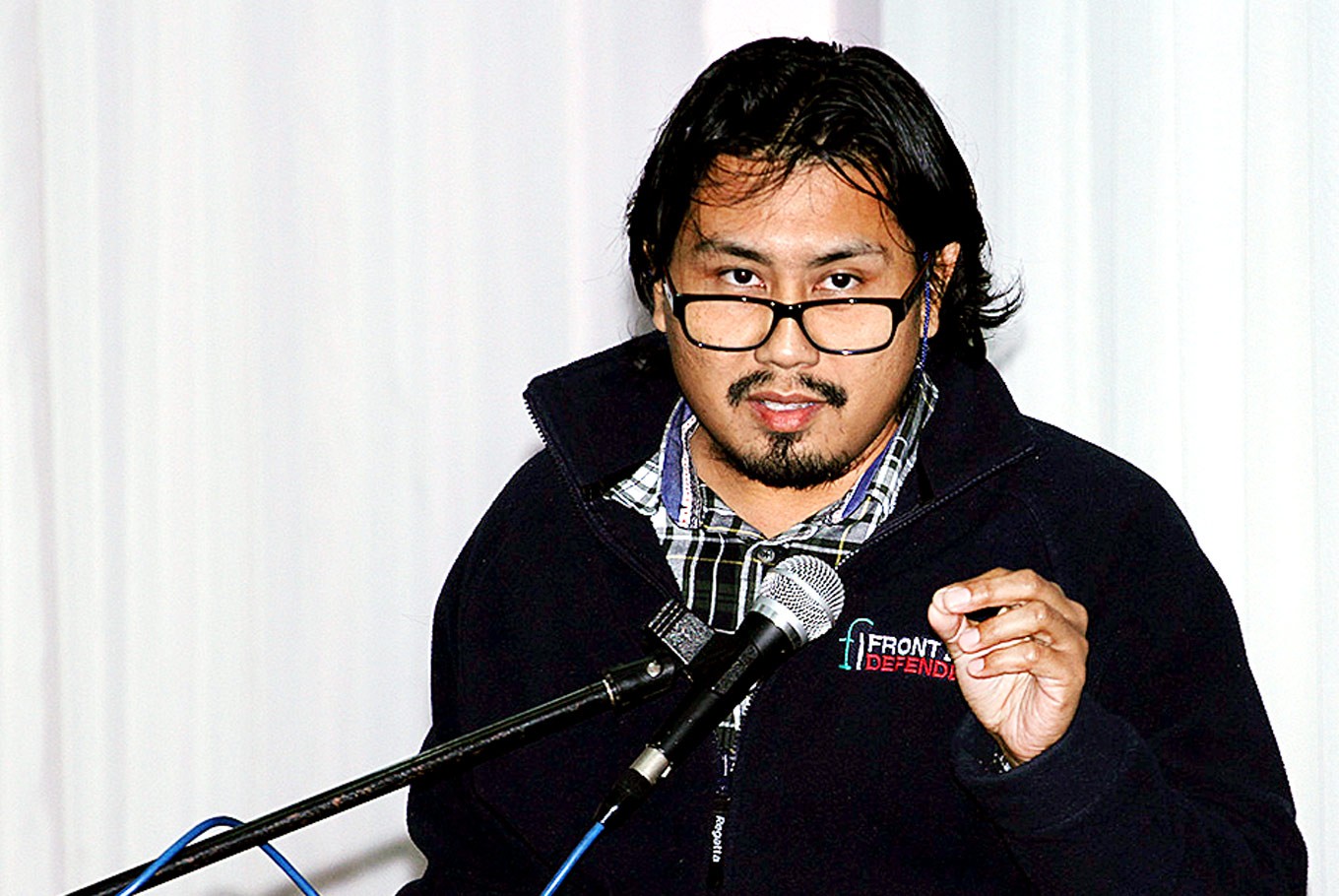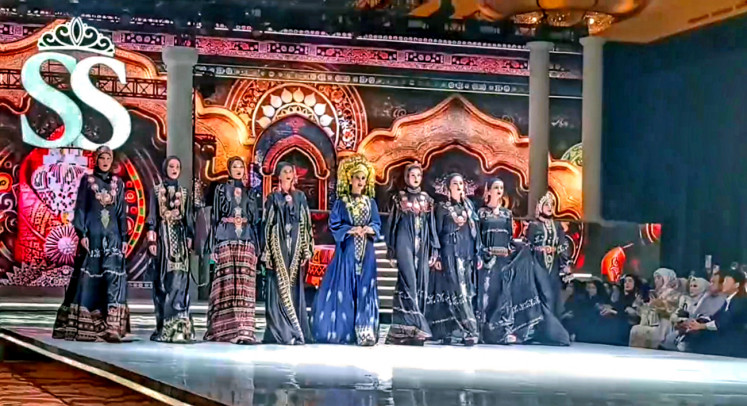Faisal Tehrani Malaysia's rebel author
On the opening night of the ASEAN Literary Festival, Dr. Mohd Faisal Musa delivered an impassioned speech calling on the literary community to unite, while calling out curbing of freedom of expression in the region.
Change Size
 Faisal Tehrani (Faisal Tehrani via Wikipedia.org/File)
Faisal Tehrani (Faisal Tehrani via Wikipedia.org/File)
T
he prominent Malaysian author-playwright, known in literary circles as Faisal Tehrani, has penned over 30 novels, short stories, poems and plays.
His novel 1515, used as reading text for the Malay Studies program at the University of Cologne, won the Malaysian National Book Prize in 2005.
However, from being the poster child of Malay literature, Faisal soon fell from grace with the Malaysian government when he branched out into a subject matter considered taboo in the country — Shia Islam.
Six of his works, five novels and a play, which delve into the topic, remain banned in the Sunni Muslim country. One of the books, Sebongkah Batu di Kuala Berang (A Rock in Kuala Berang), talks about Shia Islam being the first to reach this region, a fact that Faisal discovered during his research.
“This fact is too scary to handle in the era of proxy war between Saudi Arabia and Iran,” he said.
The Malaysian government has deemed the banned books “religiously deviant,” saying they “contain elements which could confuse Muslims and cause moral harm.”
While Faisal doesn’t deny the existence of Shia elements in his works, his intention is to highlight his support for freedom of religion and his opposition of institutionalized Islam in Malaysia.
“I have positioned myself ideologically against the Malaysian government’s ‘Islamism’ project and by challenging the status quo, even a known writer like me can get into trouble” he said.
Even his works that are banned are hard to find on bookshelves like his novel, Bagaimana Anyss Naik Ke Langit (How Anyss Goes to the Sky), focused on the plight of the Penan Indigenous group in Sarawak.
“This commercial censorship proves that fear is creeping in effectively,” he said.
Making no effort to hide his disdain for Islamic bureaucrats, he calls the ban imposed by them “another form of terror” and a sign of “rising extremism.” Their actions, he said, are in opposition to Islam’s strength.
“Islam is a religion that is immune to opposition, criticism, disagreements or even ridicule from insiders and outsiders. I believe that my religion has this capacity, but the Malay clerics can be easily offended,” he said.
However, Faisal remains fearless and undeterred, and vowed to explore his areas of interest more and continue to write on the subject.
“I still have faith in literature. In this war imposed by extremists, words and stories have proven to be the real weapons we can use to fight back. Men of letters should experiment with everything, especially ideas,” he said.
He calls on the literary community in ASEAN countries to do the same to tackle the problems in the region. He asks them to go beyond just telling stories and also offer solutions.
“Indeed, literature places crisis at the center, highlighting violations, publicizing the issue, and we as writers need to go beyond,” he said.
He is currently working on a novel about the journey of a human rights defender, drawing from his own life experiences. Calling himself “an accidental human right defender, Faisal said he arrived at this point in life after diving deeper into his own traditions.
“I was a believer that human rights were Western-oriented, that we should have our own mold. But the more I look into oral literature the more I see universal values,” he said,
He points out that he sees “human rights lessons in Malay proverbs” and “freedom of expression in folklores.”
“I found the only Malay exegesis, Tafsir Nurul Ihsan supporting the very idea of freedom of religion; that allows Muslims to abandon their religion, if they think it is not central in their life anymore,” he said.
However, Faisal highlights that this does not mean that his recent works are a rejection of Western ideas or rejection of Islam, but positions them as a “bridge between these two poles.”
“I believe this is a correct formula,” he said.









